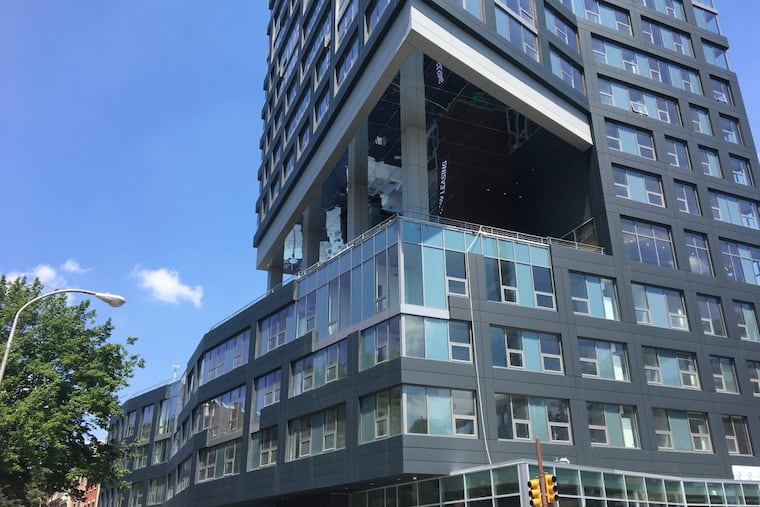Philadelphia Council bill would mandate affordable units in every development
Philadelphia offers developers incentives to build reduced-priced housing in gentrifying neighborhoods.

In the five years since Philadelphia introduced a zoning incentive to encourage developers to incorporate reduced-price units into their projects, private builders have produced a mere 15 affordable apartments. The program nearly collapsed last year when a development company had a change of heart after its building was completed — with five extra floors. Most developers don't even bother with the bonus anymore.
Now, City Council members want to try a different approach to creating affordable housing. A bill introduced Thursday — in the final hours of Council's spring session — would require that every major development, whether housing or rentals, include reduced-priced units. Ten percent of the units would have to be priced for the working poor.
The goal is to cushion the impact of gentrification in neighborhoods where house prices are rising rapidly.
To compensate developers for renting or selling their units at below-market prices, the bill would allow them to construct buildings that are taller and denser than Philadelphia's zoning code normally allows. In some areas, they would be able to increase the number of permitted units by as much as 50 percent. Only projects with more than nine units would be subject to the affordable-housing mandate.
Such zoning incentives are known as inclusionary housing bonuses, and they have becoming increasingly common in New York, San Francisco, and other cities where stratospheric prices have made it difficult for low-wage workers to find housing. Unlike those places, Philadelphia remains relatively affordable overall, despite dramatic spikes in some neighborhoods.
While prices and rents might not be rising everywhere, the bill's lead sponsor, Councilwoman Maria Quiñones-Sánchez, argues that the mandate is essential if the city hopes to maintain a modicum of economic diversity in Fishtown, Point Breeze, and other hot neighborhoods.
"So many neighborhoods have expressed concern that their residents are being priced out," she said. "This is a tool to help them remain."
The people most likely to benefit from the privately built affordable units would be entry-level employees and the working poor, people like bus drivers and nurses who earn between $30,000 and $50,000 a year.
This would be the second time Council has tried to make affordable housing mandatory in private developments. Legislation introduced in 2007 failed after developers complained the costs would wipe out their profits.
Conditions have changed drastically since then. The median house price in Philadelphia has increased 33 percent in the last decade, and it's not unusual to see rowhouses selling for $500,000 or more in areas once written off as blighted slums. After more than a year of negotiations with the Building Industry Association, which represents area home builders, Quiñones-Sánchez and her cosponsors were able to win their support.
"We acknowledge there is a housing crisis in the city," said Leo Addimando, who serves on the BIA's board of directors. "Anything that market-rate developers can do to be part of the solution, we're on board with."
It remains to be seen whether the city's neighborhood associations will buy into the bill's ambitious goals. Umbrella organizations, such as the Philadelphia Crosstown Coalition, which represents more than 20 civic associations, were not consulted during the negotiations.
"This is news to me," said Matt Karp, who chairs the zoning committee of the Fishtown Neighbors Association. After being emailed a copy of the bill and studying it for 10 minutes, he said he saw issues that would raise red flags with neighborhood groups.
"Building more affordable housing is a good thing, but a 50 percent bonus seems like a lot," he said. "How are these larger buildings supposed to fit into the neighborhood? Is this bonus going to be stacked on top of other bonuses? You could quickly get way out of scale."
Acknowledging that the bill needs refinement, Quiñones-Sánchez said she would hold working sessions to iron out the kinks, starting in August. A hearing will be held in the fall before the measure goes to Council for a vote. The bill was cosponsored by Kenyatta Johnson, Jannie L. Blackwell, and Council President Darrell L. Clarke.
In the past, Clarke has been a vocal critic of increased density in Philadelphia neighborhoods. Members also lined up behind Councilman Mark Squilla this year after he introduced a bill curtailing density bonuses in Society Hill, a neighborhood with very little affordable housing.